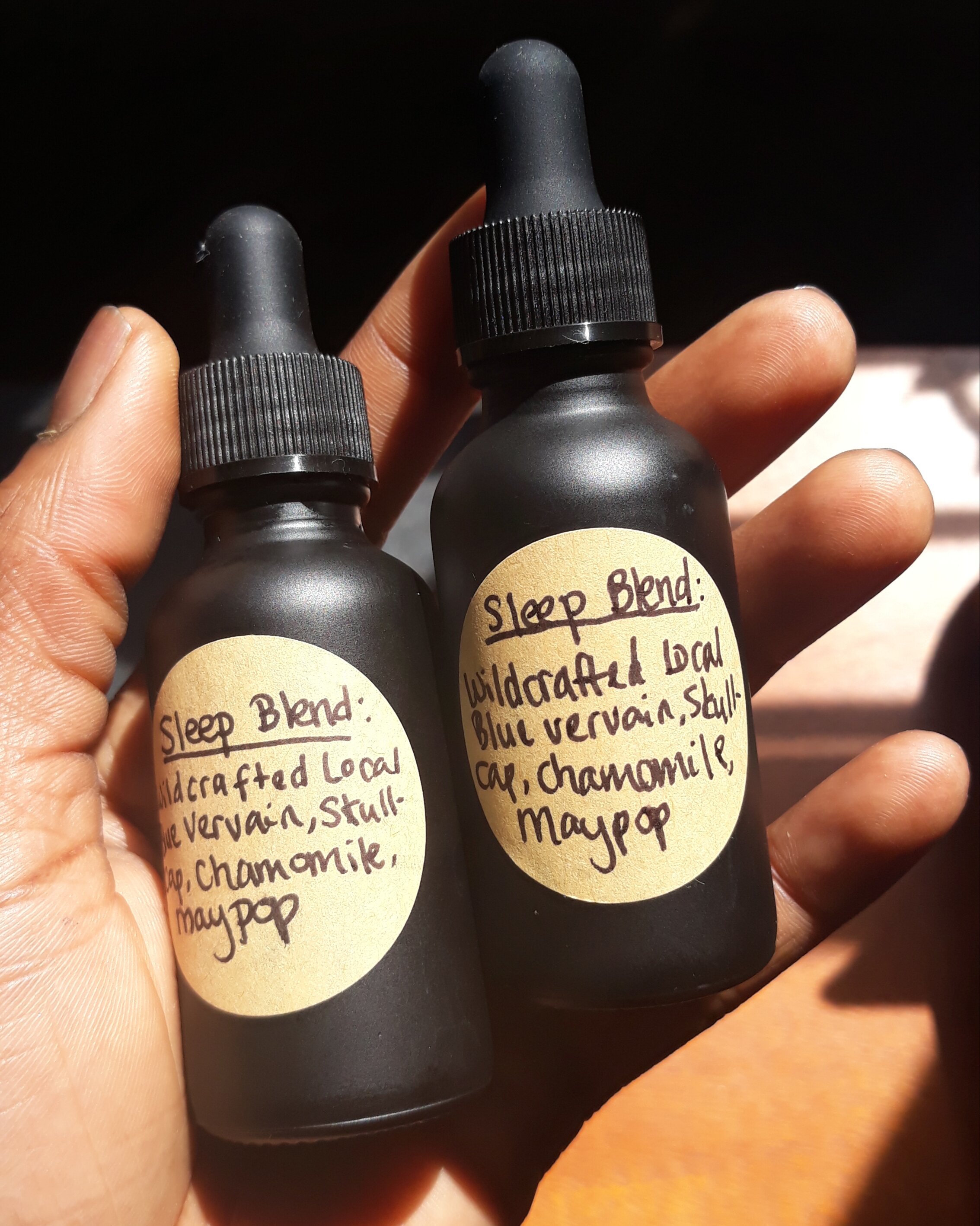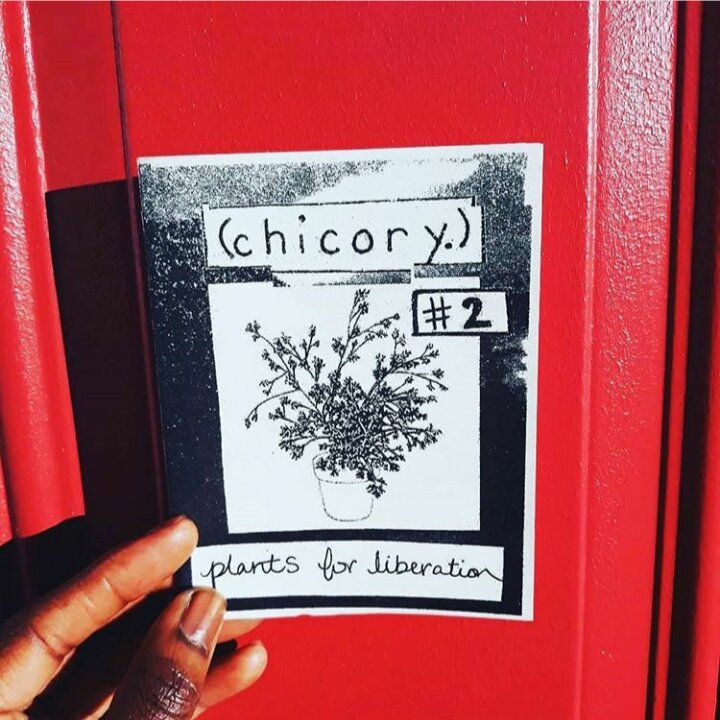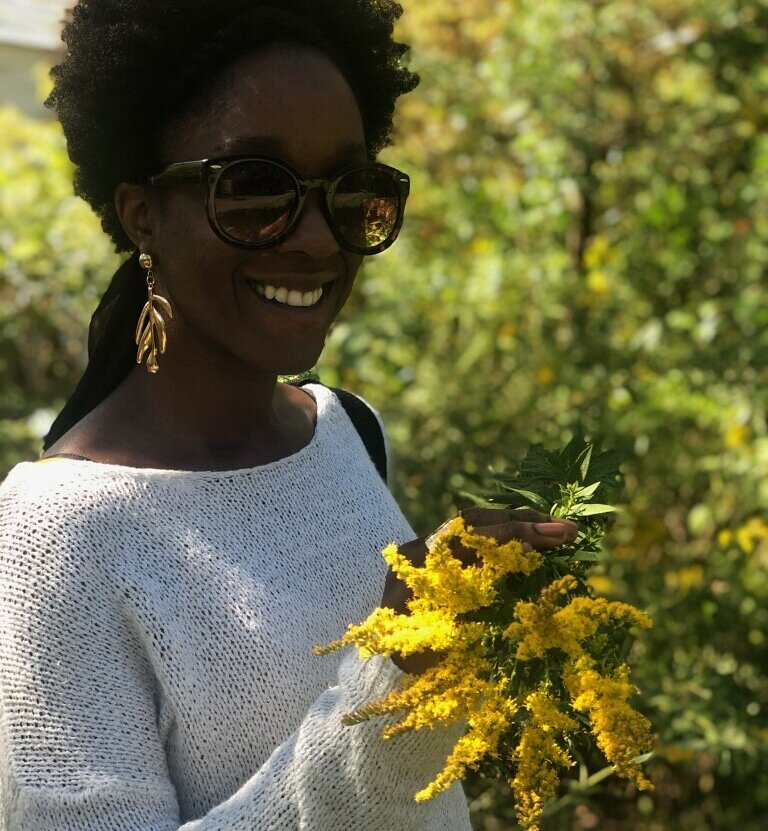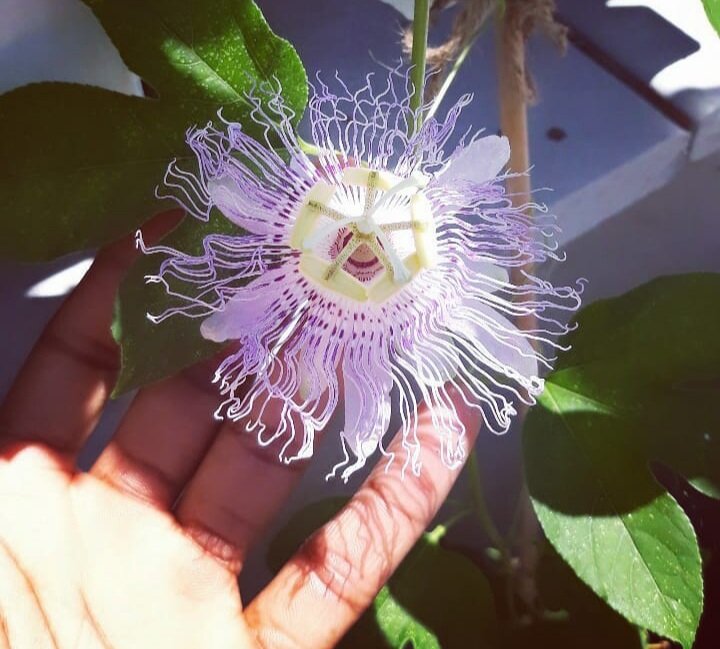Nikki Minor, Chicory Botanicals
Written by: Renee Blanchard
Nikki Minor (she/they) launched Chicory Botanicals in 2017. Chicory Botanicals donates 10% of its monthly proceeds to local and national mutual aid. I spoke with Nikki in February of 2021 about their mission to make herbalism accessible and affordable. I enjoyed our discussion on creating a business that is rooted in our environment and challenges how we look at capitalism, especially big capitalism that does not consider it’s full cost to the community from which it is asking support.
Nikki’s interest in herbs and plants for medicine came from her mom.
Nikki’s mom was a great gardener and as a kid they went to church, spent time in the garden, and went thrifting together.. Nikki’s mom was also chronically ill and believed in integrative medicine, natural supplements, took ginkgo everyday for memory and there was nothing alternative about her approach to health and wellness. It was all an essential part of the healing process. Nikki didn’t realize other though this was considered alternative medicine until later in life.
Someone gifted Nikki an herbalism book, but there was a tipping point in 2016 with Trump getting elected and the violence in Charlottesville that really highlighted the need for people to know how to take care of themselves during this more volatile time. They wanted to combine their knowledge of preventive medicine to help the people most impacted by that administration. They are the ones most in need of this knowledge.
I love following Chicory Botanicals’ instagram because of the robust conversations on herbalism in historical and local contexts. Nikki spoke repeatedly about accessible herbalism to me.
Nikki explained to me that accessible herbalism is when you can buy your herbalism products from a dollar store or easily propagate if you are walking around and see something growing that would benefit your health.
They spent a lot of time in the herb shops - when Black people walk in it can sometimes feel overwhelming and not always welcoming. They feel, like many of us, that being in an herb shop feels like you need a baseline of knowledge to feel comfortable at all, even to ask questions. Nikki doesn't’ want anyone to feel overwhelmed about herbalism. Most people want to know but there are usually cultural differences between Herb shop staff and customers that aren’t always overcome easily. Chicory Botanicals is Nikki’s attempt to create a more approachable space for selling products at low price points to those that need it the most. In our conversation Nikki repeated that herbalism doesn’t have to be exclusive or very difficult to understand. You dont need fancy items. Seasonal and locally produced items are always available.
Chicory Botanicals is a response to current events and personal product needs.
Nikki started with self-study and apprencied with Christiane at Roselie Botanicals - basically for free. This experience accelerated their journey and they started to better understand how to make products.
Every month 10% of revenue from Chicory Botanicals are donated to mutual aid funds. Mutual aid is defined as a voluntary reciprocal exchange of resources and services for mutual benefit. Nikki’s interest in donating regularly to mutual aid funds started by witnessing first appearances at the court with an organization funding bail. They then realized they could make tinctures and then donate some of the money for these people that they had seen in court. Selling products was about raising money for the bail fund.
With their dedication to accessible herbalism, giving to mutual aid initiatives, and creating products for those most in need of health and wellness items, Nikki is aiming her business to be as anti-capitalist as possible. Nikki’s business is towards anti-capialism, challenging the traditional notion of business rooted in capitalism and exploitation.
Nikki started with a range of products, smoke blends, hair oils, things they already used and needed. Nikki’s products help bring awareness to what's happening in the environment and to stay healthy by taking preventive health measures. You can often find history and agricultural information on Chicory’s instagram feed.
“How do we have a business that isn’t BIG capitalism, that isn't harmful to our community?’ Nikki explained that each year they dedicate time to educating, creating affordable price points, researching and giving to mutual aid, and adding ways to increase the sharing of this knowledge in ways that are more accessible to those that need their products the most. The process keeps going like this as new products are added or modified.
Running a business and selling products often come with hard lessons that create space for better things to come.
Learning to appreciate your worth in your pricing is essential. Nikki suggests that folks look at products that are comparable, try other people’s products as well and look at different price point to understand your market. This then leads to a better appreciation of your products market share. We have to be ok with selling more at market price. If our goal is truly to enhance the community around us, then we can redistribute this money/profit. It's not an inherently bad thing to create profits, it’s just key to be intentional about how we share our time and knowledge. Bigger capacity allows us to give more to mutual aid.
Nikki also publishes zines on herbalism. “The publishing of the second zine, which is an expansion of the mini-zine I had already created came with lessons. It’s a lot of work including hand assembling, printing at work, and glueing all the pages together. When I was ready for the second, I approached a zine publisher. They wanted me to make it longer, which took me a year to do it. When I sent it to the publisher they thought it was good but wanted me to talk more about being a Black herbalist and that wasn’t what I wanted to talk about.”
Nikki finally found a different publisher. But the lesson was simple “don’t let anyone else decide on what your content or message should be. Stay true to what you want to get out.” Nikki felt there was a lot of good conversation and good lessons that came out of this situation. The work of Chicory Botanicals is about accessible herbalism. The story Nikki wanted to share in their zine was accessible knowledge of herbs but the push back included that this information was too basic. The publishers wanted Nikki to dig into issues that was not their main message for their own comfort. This conversation was also about whether you should change how to share your products to simply have more, which could have more impact, but at what cost to your own mission.
Nikki is really active on Chicory Botanicals instagram answering questions when people reach out with questions. “I want to support folks and answer their questions, to help make the information seem less overwhelming. I made the zine for folks to put in their pocket and go to the dollar store and purchase with an EBT. Herb school is so expensive and full of privilege. It’s also not very accessible to the disabled.”








